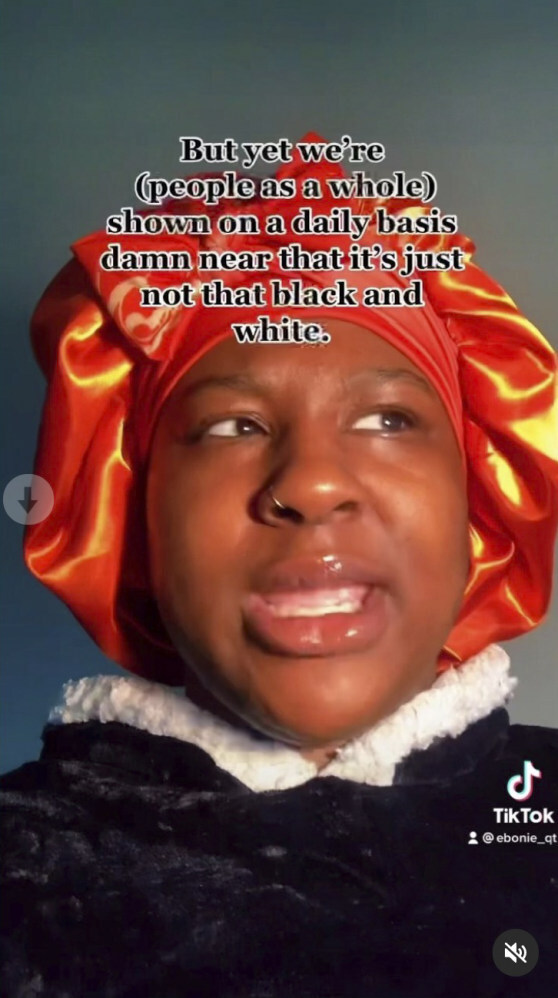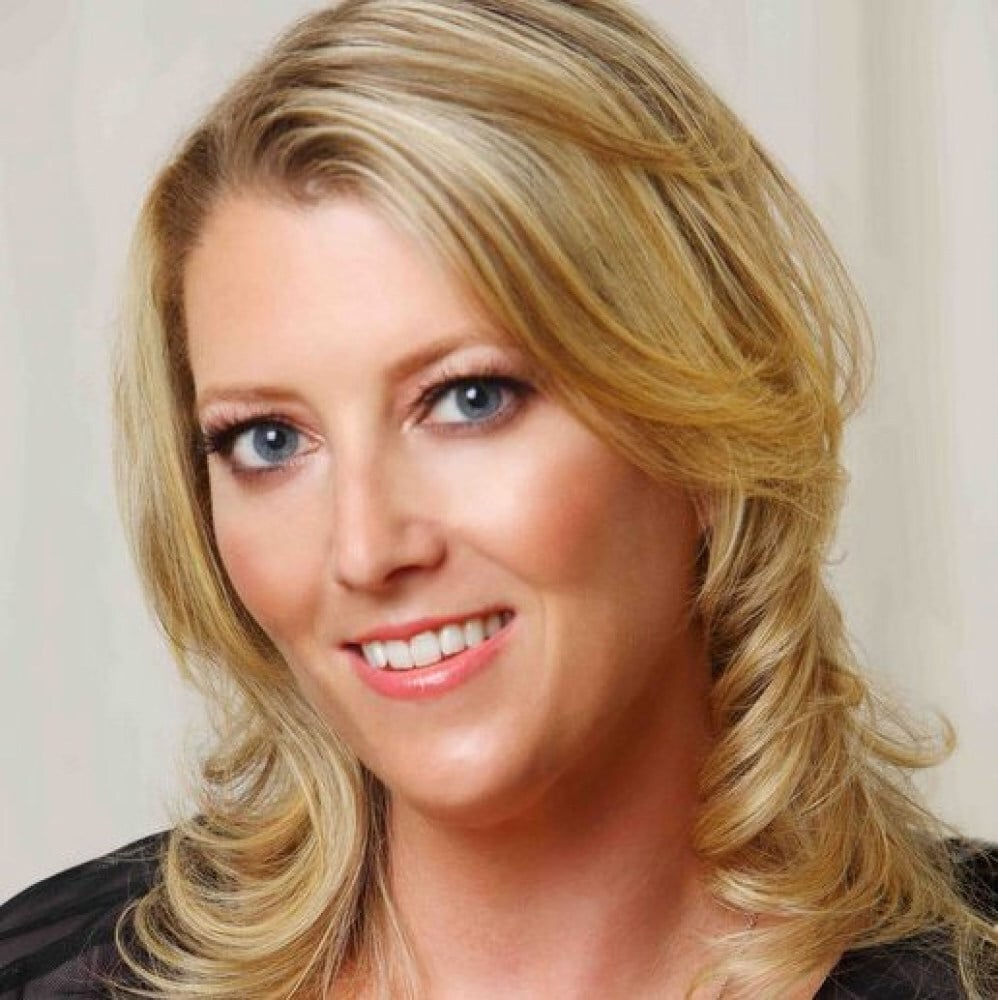
Sex and dating: how celibacy is empowering women to escape the hook-up culture and explore their inner feelings
- Celibacy can create an opportunity for mindfulness and reflection, a psychologist notes, and a space to discover your own ‘turn-ons’
- A woman who shared her three-year celibacy journey on TikTok says it’s been a period of great enlightenment – and empowerment
Taylor Powell was 22 when she realised her dating life wasn’t what she wanted it to be. She was fed up with the hook-up culture fostered on dating apps and looking for an emotional connection, so to “refocus and re-centre” she began a journey of celibacy.
“Pre-celibacy, I thought that I was down for the whole hook-up culture. I thought I didn’t want any feelings. I thought I was doing the right thing – I was in the in-crowd,” she explains, but her sexual encounters began wearing on her emotions.
“Before I became celibate, I was dating guys who were saying, ‘Oh, I do want a relationship, I want these serious things,’ and they’re really inflating your mind with the ‘we’ talk. And then once you’re intimate, they just drop off. Nothing,” she explains. “It’s a very painful form of manipulation, and that was what I experienced a lot.”
She now shares her journey as @ebonie_qt on TikTok, where her celibacy videos have gained hundreds of thousands of views.

While celibacy has long been practised for religious reasons, this celibacy trend is emerging from people who are choosing to skip sex because of dissatisfaction with the hook-up culture or a desire for healing and self-growth.
Powell isn’t alone. TikTok user @billieemali posted a video that garnered more than 100,000 likes in which she discusses her journey with celibacy, writing, “me after choosing celibacy and not allowing a man to invade my peace and body for 8+ months … So so good.”
Not just toys: Asian sex brands help women explore sexuality
Cyndi Darnell, a certified clinical sexologist, therapist and couple’s counsellor in New York, describes this language as “really powerful” and says it points to a “cultural problem” in our society.
“The fact that she feels that men invade her peace and body speaks to me about a culture that doesn’t really understand the notion of mutual pleasure and mutual beneficial connection,” she explains.
The focus on sexual wellness with this trend is “definitely a sign of the times”, she adds.

“We’re having a lot more conversations now about consent, about pleasure and certainly, in a heterosexual dynamic, women being allowed to centre themselves … and I think that is a good thing.”
Celibacy as a rising wellness trend
Darnell sees the celibacy trend as a response to a lack of education surrounding the tools needed to navigate sex and relationships.

“This is the biggest change I’ve seen in 20 years of doing sexuality work with people – once upon a time, people didn’t have information. Now they have so much information, they don’t know what to do with it, and they end up shutting down,” she explains.
“So of course the knee-jerk reaction is going to be, ‘I’m going to not do anything because I feel overwhelmed at all the options and I don’t have the emotional maturity and the emotional capacity to handle these incredibly complicated conversations that sometimes have to happen as we make sense of sex and pleasure and relationships and connection’.”
She does, however, believe celibacy is an option for some.
Not getting enough? How to boost your sex life during pandemic
“If people are doing it because it feels like something that they are doing of their own free will … They are doing it because it makes them feel good about themselves in whatever way shape or form, then it’s a perfectly valid option,” Darnell says.
She adds you “can still have a powerful and respectful relationship with yourself that includes sex with other people if you want to. Celibacy is not the only way to achieve that, but it is certainly a way if it resonates with you.”
Dr Megan Fleming, a clinical psychologist in New York who specialises in sex therapy and marriage counselling, agrees that celibacy can create an opportunity for “mindfulness and reflection”.
“Experimenting with celibacy, and experimenting with anything in life, I think it’s worthwhile to try out. It helps you get clarity about the role of relationships and sex,” she says. “It’s an opportunity to commit and discover and explore your own turn-ons, so that ultimately when you choose to be with a partner, you can communicate that. So I think that there’s a lot of empowerment for just even knowing and owning your own pleasure.”

Although Powell planned to be celibate for only a year, the now 25-year-old says three years later, she’s still learning and growing through celibacy.
“It has definitely been a time period of great enlightenment. Understanding that the reason why I was settling so much for less than what I deserve was because that’s what I thought I deserved,” she says.
Not only has she learned about herself through celibacy, it also became an “automatic filter” for potential partners. “I was very upfront whenever someone would try to approach me or I approached somebody else (about) … being celibate until my next relationship – and I saw true colours immediately,” she says. “My celibacy has kind of served as a force field and a shield of protection, because this is a great way to see someone’s true character and true values.”
Self-love improves sex language and relationships, so nourish yourself first
User @mahamaven, who also posts about celibacy, said in a video that has garnered 379,000 views “more women are realising (casual sex) doesn’t serve them, their interests or their needs”.
Commenters also chimed in to share their experience. “It’s not worth the emotional distress,” one user wrote.
“I don’t enjoy the emotional manipulation that is accompanied with hook-up culture,” another responded.
For some people celibacy means no penetrative sex with others. For some it might mean no kissing, no touching
Powell says she’s also seen a “drastic increase” in interest surrounding celibacy as a wellness practice.
“A lot of women are realising … ‘I would rather maintain the peace and solitude that celibacy brings than to have somebody who claims to be serious but isn’t really serious’,” she explains. “I think that celibacy has started to deviate from it being mainly a religious practice … If you find that your experience in dating is not advantageous, and you’re losing more than you’re gaining, taking back control can be very empowering.”
Experts agree taking time to yourself can help you feel empowered.
‘Love and lust don’t retire’: why sex after 60 is good for you
“Sometimes people get in loops of dating where it feels like a lot of rejection and then they potentially can impact mood, sometimes depression, self-esteem,” Fleming says. “So sometimes taking a break from apps or from dating is helpful just so that your mood isn’t being impacted by something external to you.”
While celibacy might not be for everyone, if you notice sex is having a negative impact on your mood in a consistent way, Fleming says, a hiatus may be beneficial.
“Potentially then when you come back to it, you come back to in a sense with a different mindset and more grounded and centred,” she says.
How coronavirus changed attitudes to sex and relationships
Healthy ways to practice celibacy
Make sure this is what you want: If you are choosing celibacy as a practice, Darnell advises to make sure “you are choosing it willingly” and “can identify some reasons that are meaningful to you”.
“If you’re just doing it because you actually have some burning questions about sex and relationships … source somebody who can help you gather the information that you’re looking for,” she explains. “You have multiple choices when it comes to sex and pleasure. It’s not just celibacy or having sex with everything that moves, there are a lot of spaces in between.”
Define it for yourself: The next step is to define what celibacy means to you. “For some people celibacy means no penetrative sex with others. For some it might mean no kissing, no touching,” Fleming explains, adding you also get to define what the window of time is.
“When we think about habit formation, even 21 to 30 days is probably significant for you to be able to observe and notice the impact of this experience,” she says.
Get to know yourself physically: If celibacy means refraining from partnered sex, Darnell suggests people “increase their masturbation practice … taking the time to learn how your body likes to respond to different kinds of touch in different places”.
Singapore has world’s widest ‘masturbation gap’ between men and women
Fleming agrees it’s important to “take advantage of that time for self-discovery”.
Get to know yourself mentally: with no one in your space to distract you, Powell says it’s easy to get in touch with yourself on a deeper level too.
“This situation gives you (the opportunity) to look at yourself, analyse yourself … figure out your patterns. You have more of an idea of who you are.”
Seek professional help: If you’re looking to learn more about sex, your body or pleasure, Darnell suggests working with a sex coach or therapist.
“There is absolutely no shame in seeking out support, especially in a culture that’s deeply uncomfortable with pleasure,” she says.

